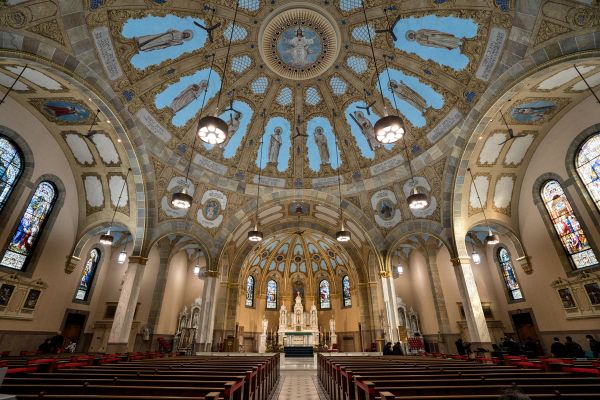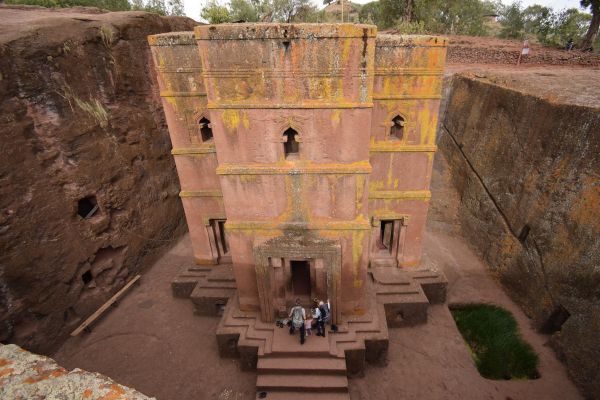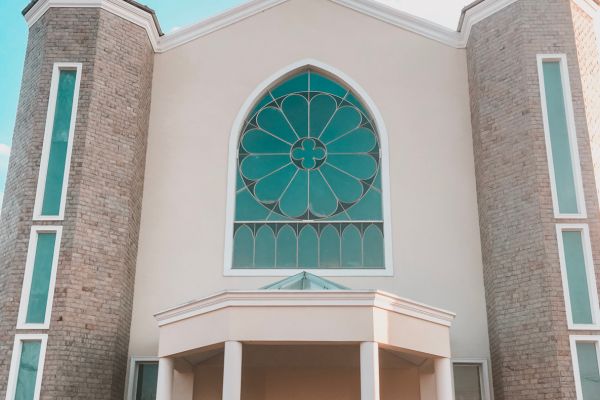Churches and religious organizations often face unique financial challenges when it comes to acquiring or improving their properties. Traditional lending institutions may hesitate to provide loans due to the specialized nature of church properties or the unconventional income streams of religious organizations. This is where hard money church loans come into play, offering a viable alternative for churches seeking financing solutions.
In this comprehensive guide, we’ll explore the world of hard money church loans, their benefits, potential drawbacks, and how they can help religious organizations achieve their property-related goals. Whether you’re a church leader, financial advisor, or simply interested in understanding this niche lending market, this article will provide valuable insights into hard money church loans.
What Are Hard Money Church Loans?
Hard-money church loans are a type of alternative financing specifically designed for religious organizations. Unlike traditional bank loans, hard money loans are typically provided by private lenders or investors who focus on the value of the property being used as collateral rather than the borrower’s creditworthiness or income.
These loans are often short-term, ranging from a few months to a few years, and are secured by the church property itself. Hard money lenders are willing to take on higher risks, which allows them to offer loans to churches that may not qualify for conventional financing.
Key Features of Hard Money Church Loans
- Asset-Based Lending: The primary focus is on the value of the church property rather than the organization’s credit history or income.
- Quick Approval Process: Hard money loans can often be approved and funded much faster than traditional bank loans.
- Flexible Terms: Lenders may offer more flexibility in loan terms, repayment schedules, and use of funds.
- Higher Interest Rates: Due to the increased risk, interest rates on hard money loans are typically higher than conventional loans.
- Shorter Loan Terms: Most hard money loans have terms ranging from 6 months to 3 years, though some may extend up to 5 years.
- Less Stringent Requirements: Hard money lenders may be more lenient with credit scores and financial documentation.
When to Consider Hard Money Church Loans
Hard money church loans can be an excellent option in several scenarios:
1. Time-Sensitive Property Acquisitions
When a church needs to act quickly to purchase a property, hard money loans can provide the necessary funds in a matter of days or weeks, rather than the months it might take to secure a traditional loan.
2. Renovation or Construction Projects
Churches looking to renovate their existing facilities or construct new buildings may find hard money loans useful for covering construction costs before qualifying for long-term financing.
3. Bridge Financing
Hard money loans can serve as a bridge between the sale of an existing property and the purchase of a new one, allowing churches to make offers without contingencies.
4. Credit Challenges
For churches with less-than-perfect credit histories or limited financial documentation, hard money loans may be more accessible than traditional financing options.
5. Unique Property Types
Some church properties, such as historic buildings or unconventional structures, may not fit neatly into traditional lending criteria. Hard money lenders are often more willing to work with these unique properties.
The Pros and Cons of Hard Money Church Loans
Pros
- Speed: Hard money loans can be approved and funded much faster than traditional bank loans, sometimes in as little as a week.
- Flexibility: Lenders may be more willing to work with churches on customized loan terms and repayment schedules.
- Asset-Based: The focus on property value rather than credit history can be beneficial for churches with limited financial track records.
- Less Stringent Requirements: Hard money lenders typically require less documentation and have more relaxed qualification criteria.
- Opportunity for Property Improvement: These loans can provide the necessary capital for renovations or expansions that may increase the church’s value and functionality.
Cons
- Higher Interest Rates: The convenience and flexibility of hard money loans come at a cost, with interest rates typically ranging from 8% to 15% or more.
- Shorter Terms: The short-term nature of these loans means churches need to have a clear exit strategy, such as refinancing or selling the property.
- Potential for Higher Fees: Hard money loans may come with higher origination fees and closing costs compared to traditional loans.
- Risk of Foreclosure: If the church is unable to repay the loan or refinance at the end of the term, they risk losing the property to foreclosure.
- Limited Regulation: The hard money lending industry is less regulated than traditional banking, which can potentially lead to predatory lending practices.
How to Qualify for a Hard Money Church Loan
While hard money lenders are generally more flexible than traditional banks, there are still some key factors they consider when evaluating a loan application:
1. Property Value
The most crucial factor is the value of the church property being used as collateral. Lenders typically offer loans based on a percentage of the property’s value, known as the loan-to-value (LTV) ratio.
2. Exit Strategy
Lenders want to see a clear plan for how the church intends to repay the loan, whether through refinancing, fundraising, or property sale.
3. Church Financial Health
While less important than in traditional lending, hard money lenders may still review the church’s financial statements and cash flow to assess its ability to make payments.
4. Leadership Experience
The experience and track record of the church leadership can play a role in the lender’s decision-making process.
5. Project Feasibility
For construction or renovation loans, lenders will evaluate the feasibility and potential value of the proposed project.
The Hard Money Church Loan Process
- Initial Inquiry: The church reaches out to potential hard money lenders to discuss their financing needs.
- Property Evaluation: The lender assesses the value of the church property, often through a professional appraisal.
- Loan Proposal: The lender provides a term sheet outlining the proposed loan terms, including interest rate, loan amount, and repayment schedule.
- Due Diligence: The church provides necessary documentation, and the lender conducts their due diligence.
- Loan Approval: Upon satisfactory review, the lender approves the loan.
- Closing: The loan is finalized, documents are signed, and funds are disbursed.
Alternatives to Hard Money Church Loans
While hard money loans can be a valuable option for many churches, it’s essential to consider alternatives:
- Traditional Bank Loans: For churches with strong financials and credit histories, conventional loans may offer lower interest rates and longer terms.
- SBA 504 Loans: The Small Business Administration offers loans specifically for non-profit organizations, including churches.
- Bond Financing: Larger churches may consider issuing bonds to finance property acquisitions or improvements.
- Crowdfunding: Some churches have found success in raising funds through online crowdfunding platforms.
- Denominational Loans: Some religious denominations offer loan programs specifically for their member churches.
Tips for Success with Hard Money Church Loans
- Do Your Research: Thoroughly investigate potential lenders and compare loan terms from multiple sources.
- Understand the Terms: Ensure you fully comprehend all aspects of the loan agreement, including interest rates, fees, and repayment terms.
- Have a Solid Exit Strategy: Develop a clear plan for repaying or refinancing the loan before the end of its term.
- Maintain Open Communication: Keep your lender informed of any changes in your church’s financial situation or project timeline.
- Consider Professional Advice: Consult with financial advisors or legal professionals experienced in church financing to guide you through the process.
The Future of Hard Money Church Loans
As the landscape of church financing continues to evolve, hard money loans are likely to remain a significant option for many religious organizations. However, we may see changes in the industry, such as:
- Increased Regulation: There may be more oversight of hard money lenders to protect borrowers from predatory practices.
- Technology Integration: Online platforms and digital tools may streamline the application and approval process for hard money church loans.
- Hybrid Loan Products: Some lenders may develop products that combine elements of hard money and traditional loans to offer more competitive terms.
- Focus on Sustainability: Lenders may place greater emphasis on funding projects that improve energy efficiency or incorporate sustainable building practices.
Conclusion
Hard money church loans offer a valuable financing option for religious organizations facing unique property-related challenges. While they come with higher costs and shorter terms than traditional loans, their flexibility and accessibility can make them an attractive choice for churches in various situations.
By understanding the pros and cons, qualification requirements, and best practices associated with hard money church loans, religious organizations can make informed decisions about their financing options. As with any significant financial decision, it’s crucial to carefully consider all alternatives and seek professional advice when necessary.
Whether you’re looking to acquire a new property, renovate an existing facility, or bridge a financing gap, hard money church loans may provide the solution you need to achieve your organization’s goals and continue serving your community.
Frequently Asked Questions
- Q: What is the typical interest rate for a hard money church loan? A: Interest rates for hard money church loans typically range from 8% to 15%, but can sometimes be higher depending on the lender and the specific circumstances of the loan.
- Q: How long does it take to get approved for a hard money church loan? A: The approval process for hard money church loans is generally much faster than traditional loans. In some cases, approval can be obtained within a few days to a week, with funding following shortly after.
- Q: Can a church with poor credit qualify for a hard money loan? A: Yes, it’s possible. Hard money lenders focus primarily on the value of the property being used as collateral rather than the church’s credit history. However, having poor credit may result in less favorable loan terms.
- Q: What is the maximum loan-to-value (LTV) ratio for hard money church loans? A: LTV ratios for hard money church loans typically range from 60% to 75% of the property’s value, though some lenders may offer higher LTVs in certain circumstances.
- Q: Are there prepayment penalties on hard money church loans? A: This varies by lender. Some hard money loans come with prepayment penalties, while others allow for early repayment without additional fees. It’s important to clarify this point when negotiating loan terms.
- Q: Can hard money loans be used for church construction projects? A: Yes, hard money loans can be used for church construction projects. They’re often used to fund the initial phases of construction before the church qualifies for long-term financing.
- Q: How does the repayment structure work for hard money church loans? A: Repayment structures can vary, but many hard money church loans require interest-only payments during the loan term, with a balloon payment of the principal due at the end of the term.
- Q: Are hard money church loans regulated by the government? A: Hard money lending is less regulated than traditional banking. However, lenders must still comply with state and federal lending laws. Churches need to work with reputable lenders and seek legal advice when necessary.
- Q: Can a hard money church loan be refinanced into a traditional mortgage? A: Yes, many churches use hard money loans as a short-term solution to refinance into a traditional mortgage once they meet the qualifications for conventional financing.
- Q: What documents are typically required for a hard money church loan application? A: While requirements can vary by lender, common documents include property appraisals, financial statements, project plans (for construction or renovation loans), and information about the church’s leadership and congregation.







